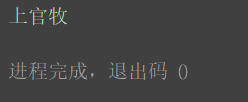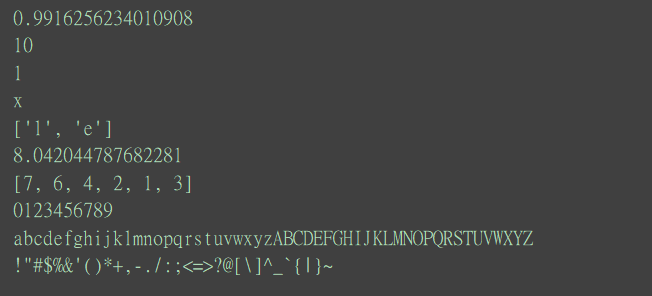一、随机生成汉字:
第一种方法:Unicode码
在unicode码中,汉字的范围是(0x4E00, 9FBF)
这个方法比较简单,但是有个小问题,unicode码中收录了2万多个汉字,包含很多生僻的繁体字.
第二种方法:GBK2312
gbk2312对字符的编码采用两个字节相组合,第一个字节的范围是0xB0-0xF7, 第二个字节的范围是0xA1-0xFE.
对GBK2312编码方式详细的解释请参看GBK2312编码
GBK2312收录了6千多常用汉字.两种方法的取舍就看需求了.
import random def Unicode(): val = random.randint(0x4e00, 0x9fbf) return chr(val) def GBK2312(): head = random.randint(0xb0, 0xf7) body = random.randint(0xa1, 0xfe) val = f'{head:x} {body:x}' str = bytes.fromhex(val).decode('gb2312') return str if __name__ == '__main__': print(Unicode()) print(GBK2312())

第三种方法:列表读取
# encoding: utf-8 import random first_name = ["王", "李", "张", "刘", "赵", "蒋", "孟", "陈", "徐", "杨", "沈", "马", "高", "殷", "上官", "钟", "常"] second_name = ["伟", "华", "建国", "洋", "刚", "万里", "爱民", "牧", "陆", "路", "昕", "鑫", "兵", "硕", "志宏", "峰", "磊", "雷", "文","明浩", "光", "超", "军", "达"] name = random.choice(first_name) + random.choice(second_name) print(name)

二、随机生成数字:
phone_f = "182" phone_e = random.randint(10000000,99999999) phone = phone_f + str(phone_e)
三、其他随机语句:
import random import string print(random.random())#随机浮点数,默认取0-1,不能指定范围 print(random.randint(1,20))#随机整数 print(random.randrange(1,20))#随机产生一个range print(random.choice('x23serw4'))#随机取一个元素 print(random.sample('hello',2))#从序列中随机取几个元素 print(random.uniform(1,9))#随机取浮点数,可以指定范围 x = [1,2,3,4,6,7] random.shuffle(x)#洗牌,打乱顺序,会改变原list的值 print(x) print(string.digits)#所有的数字 print(string.ascii_letters)#所有的字母 print(string.punctuation)#所有的特殊字符
